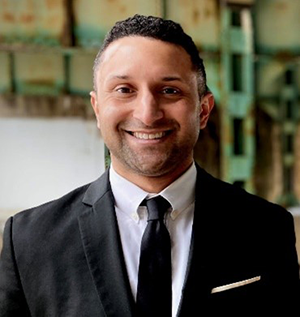What is the purpose of studying Torah? I study Torah because I'm fascinated by the stories of our people and enjoy studying the various interpretations. However, there are many disturbing passages. How do I come to terms with the challenging laws and narratives in this sacred text that I love so much?
Emor features a set of laws that I find particularly challenging:
If any party kills any human being, that person shall be put to death. One who kills a beast shall make restitution for it: life for life. If any party maims another [person]: what was done shall be done in return- fracture for fracture, eye for eye, tooth for tooth. The injury inflicted on a human being shall be inflicted in return. (Leviticus 24:17-20)
The phrase "An eye for an eye and a tooth for a tooth" is, sadly, not as antiquated as I might like to believe. Many people still think that if someone hurts another person, they should be hurt in return. There was a time when retribution was considered perfectly lawful. Hurting someone was considered a just and fair way to solve disputes and serve as punishment. The idea was that this punishment would bring closure to a crime. But it didn't. All it served to do was continue the cycle of pain. Two wrongs do not make a right, as the adage goes.
Luckily, the ancient Rabbis knew that this part of Torah was not meant to be taken literally. The Rabbis read this and reinterpreted this to refer to compensatory monetary damages; not physical retribution. It's refreshing to realize that it isn't just we modern interpreters who know when to read between the lines. Just like the Rabbis did in days of old, we modern thinkers also get to realize when God is speaking not literally, but metaphorically.
Taking the time to look at a biblical law and knowing that it needs reinterpretation -- this is a holy duty that the Rabbis took seriously. One might say that the Rabbis felt obligated to interpret the Torah in safe and modern ways. For example, we know that corporal punishment was considered perfectly acceptable in schools (in some states, it still is!), but the general consensus is that this is no longer acceptable. As a modern thought leader, I also feel obligated to take a critical look at our modern laws and cultural norms. What things today might be regarded as archaic in the future?
How do we reconcile the fact that the Torah is full of troubling passages? I choose to view problematic laws the same way I read the Torah's problematic stories: as learning opportunities. Cain killed Abel. Rebekah orchestrated a life-changing lie. Joseph's brothers tried to get him killed. David had Bat-Sheva's husband killed so he could be with her. When we see these Biblical characters behaving poorly, we know that we're not supposed to emulate that behavior; we're supposed to learn something. We know that their missteps are part of a larger lesson. We learn from their mistakes. We can look at our laws the same way.
As a Black man who grew up in the 60's, my dad was particularly affected by racism. Every day, he gave us lectures on racial injustice in this country. I was barred from watching shows that only featured white characters. "Roseanne" and "King of the Hill" were absolutely forbidden. "Family Matters," and "Living Single" were both required viewing. The exception was "All in the Family." The show was about Archie Bunker, a trope of the loud and angry white man bigoted against all minority groups (even feminists). Why would a strong Black man be endeared to this character? At the end of every episode, Archie's prejudiced views would be challenged and proven wrong. He would have to begrudgingly admit that his narrow-mindedness was unfounded and rooted in bigotry. The audience learned about social justice from a character who was clearly always in the wrong.
We learn so much from studying antiquated laws. It gives us an opportunity to have powerful conversations. As a teacher, I would read these passages with a group of students and ask: "Why is this no longer the law of the land? What do we think led to the abandonment of this system of law? How would our society look if this was how our law system operated today?" Suddenly, the passage of the Bible that seemed completely archaic and useless to modern thinkers has now created an opportunity for learning and discourse. Studying ancient laws helps us learn how we developed our modern legal system. I view Torah in the same way.
When I stopped seeing the Torah as a literal rulebook and instead as a historical and sacred text embedded with learning opportunities, I found it much less troubling. If we do the work to wrestle with passages, examine alternative interpretations, view it in a historical context, and come up with our own interpretations, we then can see it as a document that helps us reexamine and reaffirm our modern-day values.


